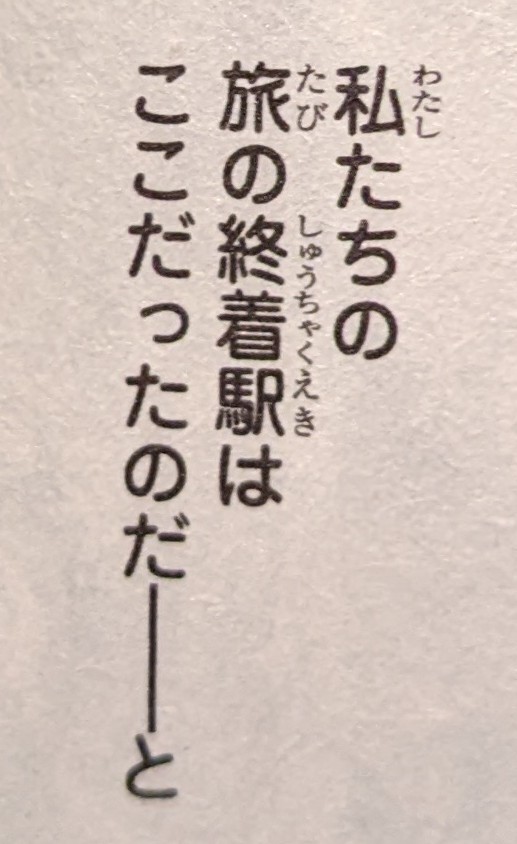Using と to leave something implied
Generally, と is used to point at some kind of quote, completed with 思う or 言う or similar verbs. Often, however, the verb itself is omitted when the meaning is obvious. Sometimes it’s not even clear which verb it actually is, but you kinda just know what it is hinting at.
For example, have this great quote from クジラの子らは砂上に歌う
Without the と, the sentence is 私たちの旅の終着駅はここだったのだ which roughly translates as “This was the final stop of our journey”, but adding the と at the end implies something like と思った which is an addition that makes it sound like something was going to change that idea. “We thought it was the end but…” kinda vibes.
The fact that this quote came right at the end of the volume was the cherry on top as it closed it on a very ominous cliffhanger.
